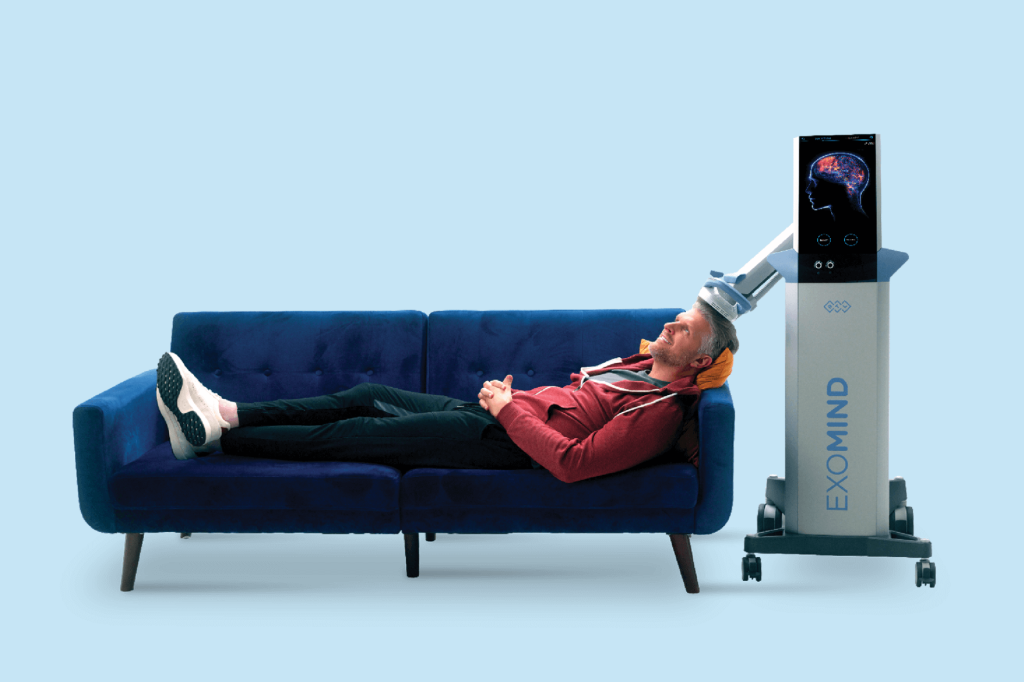
How Does Functional Neurology Treat Vestibular Disorders?
Many of the conditions we treat at Neuroheatlh Services involve disorders of the inner ear or the vestibular system. These conditions cause symptoms that affect balance, spatial orientation, and coordination.
Functional neurology practitioners at Neurohealth Services use a range of advanced tools to diagnose and treat these disorders. Here are some of the conditions we see at Neuroheatlh Services and the approaches we use to treat them.
Benign Paroxysmal Positional Vertigo (BPPV)
This condition is characterized by positional vertigo in which an individual may feel extremely dizzy when their head is in a certain position. For example, you may roll over to one side in bed and feel intense room-spinning vertigo for 10 to 20 seconds. The Epley maneuver is designed to restore balance and orientation.
Vestibular Migraines
This particular type of migraine includes vertigo or dizziness as one of the main symptoms. Functional neurology can provide strategies to manage migraines, such as dietary modifications, lifestyle changes, stress management techniques, and supplementation, to reduce the frequency and intensity of vestibular symptoms.
Mal de Debarquement Syndrome
Mal de Debarquement Syndrome (MdDS) is a rare neurological disorder characterized by persistent feelings of motion, such as rocking, swaying, or bobbing, that typically occur after a period of travel on a boat or other motion-triggering mode of transportation. There have been reported cases of individuals experiencing MdDS-like symptoms without a clear history of such travel. This sensation of continuous motion, even when on solid ground, can severely disrupt a person’s quality of life and daily routines. At Neurohealth Services we use non-invasive vestibular rehab treatments designed to target the brain’s balance and spatial orientation systems, such as the GyroStim rotational chair system and videonystagmography (VNG).
Unilateral Vestibular Weakness
This condition is characterized by an imbalance in the functioning of the vestibular system, which, as noted, plays a crucial role in balance and spatial orientation. This imbalance often stems from damage or dysfunction in one ear’s vestibular organs. Functional neurology’s approach to treatment uses the principles of neuroplasticity to focus on optimizing the central nervous system’s function and promoting compensation for the weakened vestibular input. Treatment strategies may involve specific exercises and activities designed to stimulate the affected vestibular pathways, as well as sensory integration techniques aimed at improving overall balance and coordination.
Visual Vertigo or Persistent Postural Perceptual Dizziness
This is another condition characterized by a persistent sensation of dizziness or unsteadiness and can be triggered or worsened by specific head and body movements. Patients may experience instability, and sometimes nausea or headache, particularly when exposed to busy visual environments, patterns, or when focusing on moving objects. The condition is thought to arise from a mismatch between visual and vestibular (inner ear) sensory input, leading to confusion in the brain’s processing of spatial orientation. PPPD is considered a functional disorder, and its management typically involves a combination of approaches, including vestibular rehabilitation, cognitive behavioral therapy, and addressing anxiety or psychological factors that may contribute to the symptoms.
Motion Sickness
This common and uncomfortable condition is marked by nausea, vomiting, and dizziness when exposed to motion or other sensory triggers that the brain perceives as conflicting. Functional neurology offers a comprehensive approach to treating motion sickness by addressing the underlying neurological imbalances and enhancing the brain’s ability to adapt to sensory input. Treatment strategies may include vestibular rehabilitation techniques like sensory integration and neurofeedback that help our patients better control their autonomic nervous system.
In addition to the treatments described for the conditions listed above, general approaches to vestibular disorders also always include a thorough evaluation to assess our patient’s symptoms, medical history, and neurological function. We use advanced diagnostic tools to analyze eye movement and vestibular function.
Our functional neurology practice also recognizes the importance of sensory input for proper balance and coordination. Incorporating visual and auditory cues can help retrain the brain’s interpretation and integration of sensory information.
Finally, functional neurology recognizes that each patient’s condition is unique. Therefore, our treatment plans are tailored to the specific needs of each individual patient. We may combine various therapies to address the underlying causes of vestibular dysfunction and support overall neurological health. A Discovery Day is a 3 to 4-hour comprehensive examination designed to evaluate your unique neurological health so that we can develop a personalized treatment program to meet your needs.
If you’re experiencing any of the symptoms of vestibular dysfunction noted above, or you’ve experienced a noticeable decrease in cognitive function along with digestive symptoms, headaches, dizziness, or fatigue that are disrupting your quality of life, schedule a free 10-minute consultation with Neurohealth Services that can be the start to your wellness journey. Call (317) 848-6000.
NEAUROHEALTH SERVICES
Get back to feeling like yourself naturally. Natural treatment for neural and chronic pain.
CATEGORIES
Recent Articles
ExoMind™ : A New Era of Brain Health & Recovery
Introducing ExoMind™ at NeuroHealth Services: A New Era of Brain Health & Recovery By Dr. Brad Ralston,…
Understanding the Brain’s Cognitive Landscape: The Areas of the Brain and Their Processes
On the NeuroHealth Blog, we’ve explored a range of the common symptoms we treat at Neurohealth Services,…
The Gut-Brain Connection: How the Vagus Nerve Influences Digestive Health
With winter holidays quickly approaching, many of us have food on our minds. But there’s a neurological…
Is Neurorehabilitation for you?
NeuroHealth provides neurorehabilitation for all ages, specializing in treatment for vertigo, migraines, post-concussion syndrome, and other neurological disorders. Contact our office today.



